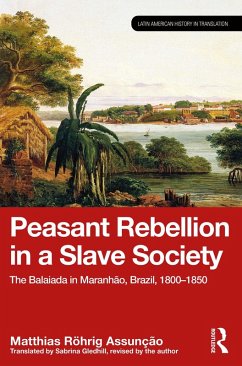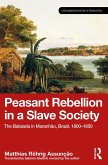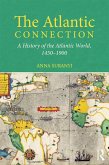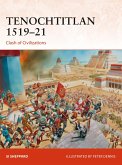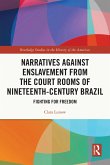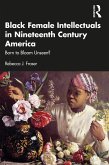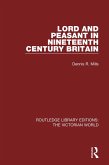Dieser Download kann aus rechtlichen Gründen nur mit Rechnungsadresse in A, B, BG, CY, CZ, D, DK, EW, E, FIN, F, GR, HR, H, IRL, I, LT, L, LR, M, NL, PL, P, R, S, SLO, SK ausgeliefert werden.
"A monumental piece of research and a lasting contribution to historical scholarship. It is indispensable reading to scholars working on the transformations in colonial societies in the early nineteenth century, and particularly to those interested in popular revolts and political engagement by free people of color."
Beatriz G. Mamigonian, The American Historical Review (2022)
"Matthias Assunção's book is a classic that was first published in German and has been circulating among specialists through English and Portuguese articles for over 20 years before being published in Portuguese in 2018. The original research, which is absolutely groundbreaking in the field of agrarian history, environmental history and slavery in the 19th century, has opened up new windows of analysis for the political and cultural history of the period, based on social history. The book in English incorporates much of the new historiography on these topics. The timeliness of the research carried out in the 1980s is absolutely impressive, connecting the past and present of peasant society and culture in Maranhão. Peasant Rebellion in a Slave Society reveals the connections and contradictions between peasant identity, ethnic plurality and the struggle for citizenship rights of the so-called "people of color" in 19th century Maranhão, placing the region, considered peripheral in Brazilian slave society, at the heart of the Black Atlantic."
Hebe Mattos, Professor of History at the Federal University of Juiz de Fora, Brazil
"In an intense dialogue between the local, the regional, the national and the Atlantic, Matthias Assunção seeks to understand how native caboclos, enslaved Africans, freedmen and their descendants became rebels and led one of the biggest revolts in imperial Brazil, in the first half of the 19th century, in Maranhão - the Balaiada. With this impressive research, I'm sure the reader will come away convinced of the importance of historical knowledge in order to review crystallized representations about the political mobilization of popular and Black sectors, as well as to understand that the past can always reappear and be activated in the political and identity struggles of the present. The Balaiada, as Matthias shows, has not been forgotten."
Martha Abreu, Emeritus Professor of History at the Federal Fluminense University, Beazil
"Among the merits that emerge from the text, perhaps the most significant and original is the proposal to explore non-enslaved forms of labor in one of the biggest slave-holding provinces of the Brazilian Empire. This book is compulsory reading for researchers dedicated to the first decades of the 19th century."
Marcelo Cheche Galves, Almanack (2017)

